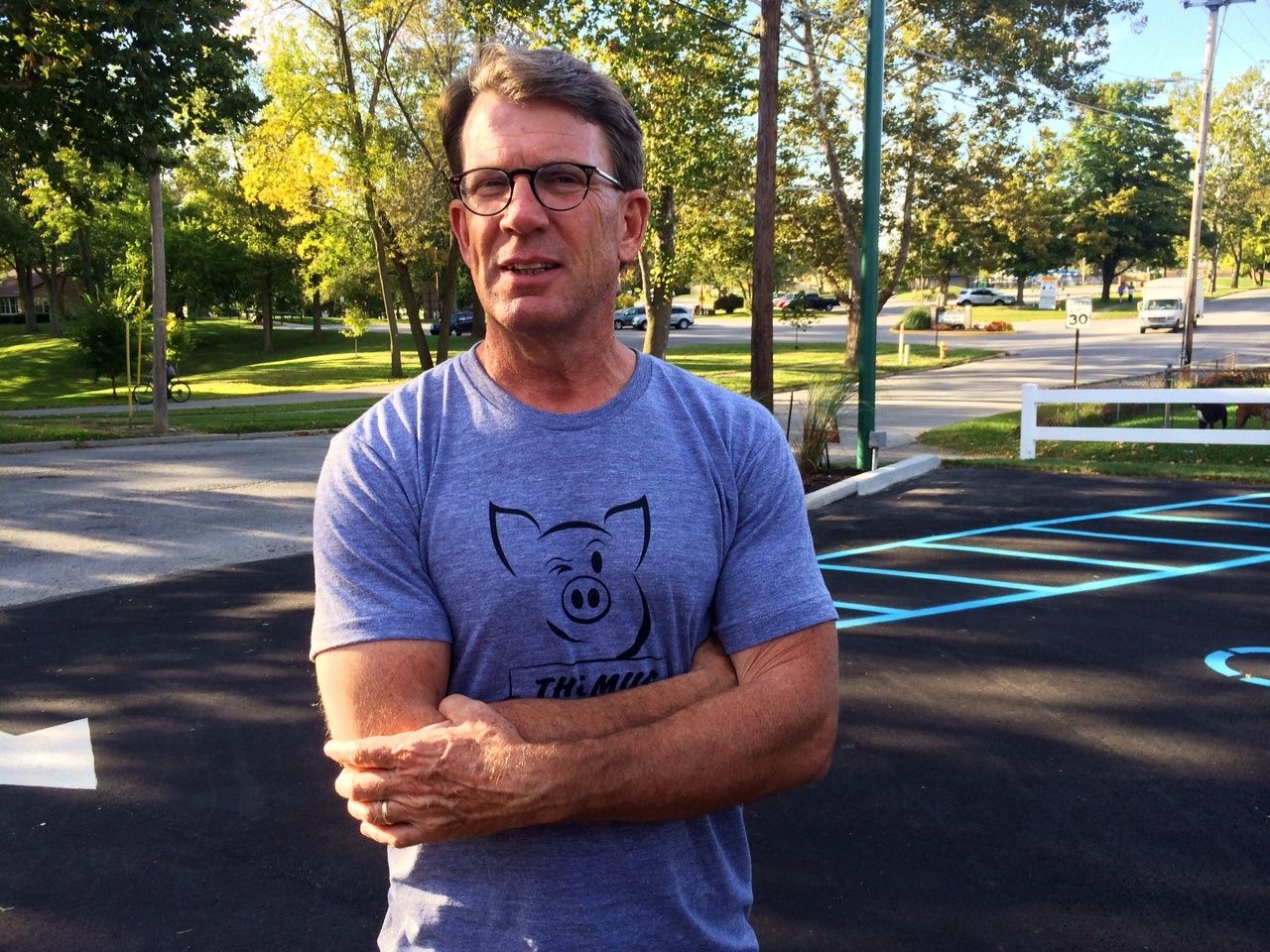Chris Baggott, the serial entrepreneur and co-founder of two major marketing software programs ExactTarget and Compendium, has turned his attention to food and agriculture.
After experiencing major success with the public listing of ExactTarget, which was later bought out by Salesforce, and the acquisition of Compendium by Oracle, Baggott now sees his future in the food and agriculture industries. So he is launching two new startups in his hometown of Indianapolis: ClusterTruck, a prepared food delivery service, and FarmersMarket.com, a fresh produce hub and delivery service.
“This sector is ripe for innovation,” he told AgFunderNews. Baggott isn’t totally new to the sector; in 2011 he bought his own farm in Greenfield Indiana — Tyner Pond Farm — which is now a pasture-raised, antibiotic-free pork, chicken and beef production business. He is also chairman of Husk Foods, another local startup, which is turning local produce into frozen vegetables to be sold in grocery stores.
While food delivery is nothing new — AgFunderNews is frequently reporting the funding of grocery and prepared food delivery services under the food e-commerce banner — Baggott is taking a novel and tech-heavy approach to it. Especially with ClusterTruck, which he believes will become a $1 billion business before long.
Unimpressed with many of the restaurants aggregators and delivery services out there, which Baggott thinks have unsustainable models and very little control over the food experience, he decided to launch ClusterTruck. Inspired by the food trucks that many professionals buy their daily lunches from, ClusterTruck aims to deliver familiar food, using fresh ingredients sourced from local farms in a timely fashion by outsourcing the delivery portion.
“We wanted to create a business that could make all different kinds of foods and be vertically integrated. So we are partnering with Uber and Sidecar and building our own technology to make food truck-inspired food. We will have our own chefs and run our own kitchens,” he told AgFunderNews. “From a math standpoint, we don’t have to have any front of house; we are only building a kitchen, so we are saving money on the square footage we need to do volume, and we don’t need to be on the main strip of a town, so we are paying much less per square foot than a restaurant does.”
ClusterTruck will start in Indianapolis, and progress into other cities surrounded by agricultural land such as Cincinnati, Ohio, as a means to get hold of local produce. “You’d have to go a long way from New York City to find enough farms to sustain a business like this, but I can drive 10 miles out of Cincinnati and find plenty of farms that can supply us,” he said.
By sourcing all its food from local farms, some of which ClusterTruck will own, the business is removing the various middlemen in the supply chain and will be able to sell food at a much more affordable cost too, said Baggott.
In large part a logistics game, Baggott is working hard on finessing the food preparation process from order to consumer, and this is where the technology will come in. “This is not just a restaurant; we have to think about every aspect of the workflow. At lunchtime, everyone wants food at the same time, so we have to think very carefully about how the kitchen looks and works. Everything can be put into an algorithm to make it function. And you also need to think about how you hire and pay staff for a job that’s needed for just a few hours of the day.”
Baggott and his colleagues have researched high volume eateries, including Google’s cafeteria, to get a better understanding of what needs to happen to produce high-quality food, in bulk, and quickly.
“Food logistics is a really interesting space and will be a huge area for innovation over the next few years,” he said.
What does he think about the competitive landscape in food e-commerce?
“It’s great. GrubHub has a $3.5bn business that’s only 5 percent of the delivery market. The industry is so huge, so there’s lots and lots of room for all kinds of innovation. When the customer is everyone, there are lots of opportunities for winners,” he said.
ClusterTruck recently raised a $2 million seed funding round from a range of investors and expects to launch the business in January, after its first kitchen is built. With that round, Baggott also hopes to construct another two kitchens before going back to the market for more capital later next year.
FarmersMarket.com meanwhile is at a much earlier stage. Aiming to pursue the established concept of food hubs, the business will help farmers bring their products to a distribution center, and then again integrate with delivery services like Uber to do final mile distribution.
“We really want to help integrate farmers more into their market and we have some really unique networking ideas for this too,” said Baggott. “We will probably release something in January. I don’t know what will happen with FarmersMarket, as the big e-commerce companies and retailers will probably win there. But ClusterTruck will be truly revolutionary.”
Have news or tips? Email [email protected]
Image credit: Jolene Ketzenberger/EatDrinkIndy





